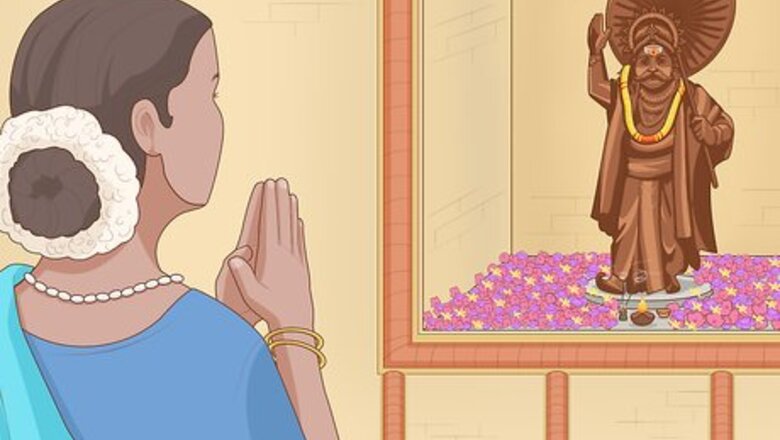
views
X
Research source
Participating in Daily Celebrations
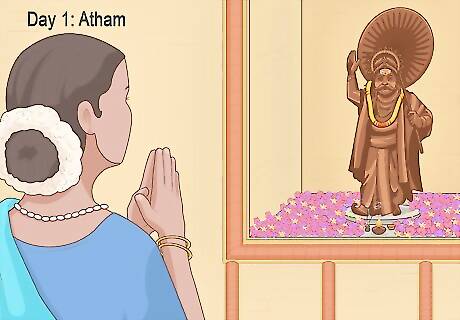
Visit the temples on the first day. During the morning of the first day of Onam, known as Atham, seek out a temple. While you are there, pray for King Mahabali to make a safe return from the netherworld to modern-day Kerala.
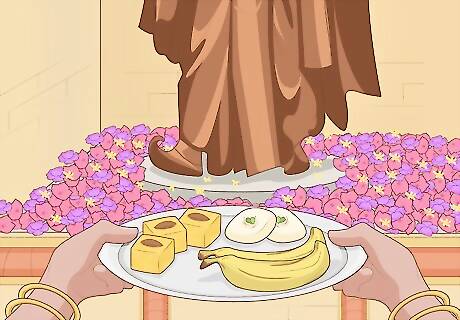
Take part in a procession if you are near Thrippunithura. Walk alongside other revelers and make your way to the city of Thrippunithura near Kochi. Pray and leave offerings of food or small trinkets when you reach your destination. It is believed that the King left the world close to this location.
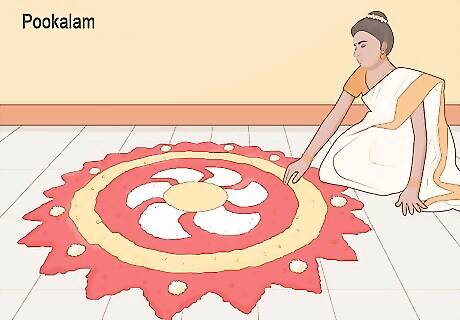
Begin to create the Pookalam. This is a multi-colored floral carpet that most Indian families place at the entrance of their residence. The design will start out simple and become more complex and colorful over time. For this first day, arrange yellow flowers in a basic circular design.
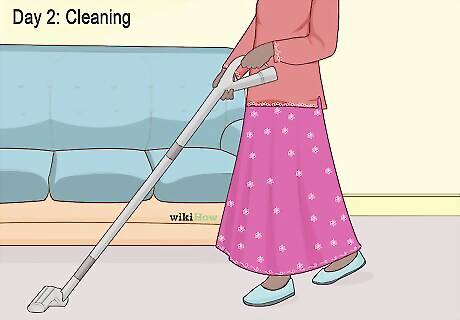
Clean your house on day 2. On the second day of Onam, known as Chithira, go through your house and scrub it from floor to ceiling. Remove any extra debris or trash from inside. Look over the exterior to make sure that it appears tidy as well.
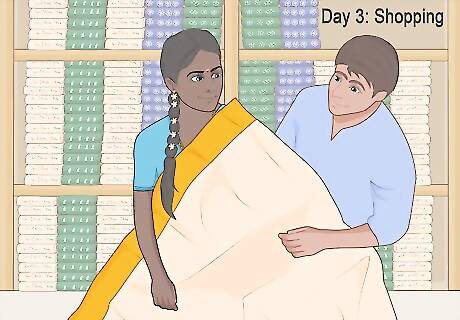
Hit the market on day 3. On the third day of Onam, known as Chodhi, go out shopping with your entire extended family. Look for jewelry or clothing pieces that you can give to others as gifts. The gifts do not have to be extravagant, especially if you plan to give them to multiple family members.
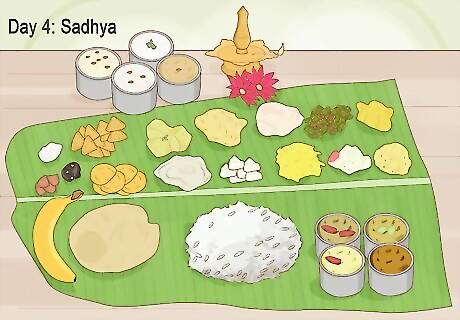
Start preparing the sadhya on day 4. The Onam sadhya is a large meal composed of 26 delicacies. On the fourth day of Onam, known as Vishakam, each family member is expected to contribute something to the creation of this meal. Go to the market to get basic ingredients or spend your time grinding up herbs and spices.
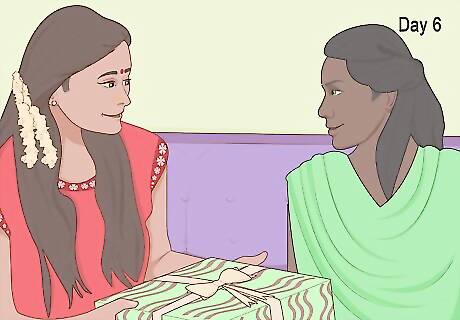
Exchange gifts with loved ones on day 6. The sixth day of Onam, known as Thriketa, is when you should travel to your ancestral home. Visit the house of your oldest living relative. Meet other relatives there and exchange gifts that you shopped for a few days prior.
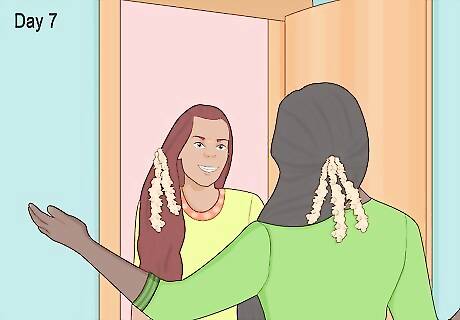
Visit other families in your community on day 7. Throughout the seventh day of Onam, known as Moolam, travel around your neighborhood and enjoy miniature sadya meals with your neighbors. Alternatively, go to your local temple and enjoy a sadhya prepared by them for worshippers.
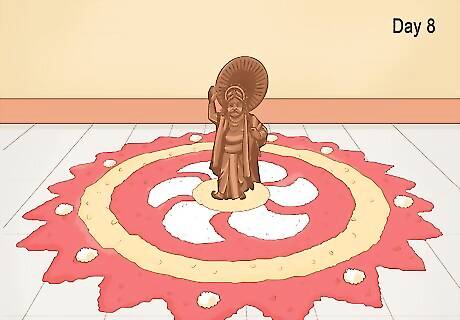
Welcome the statues of Mahabali and Vamana on day 8. For the eighth day of Onam, known as Pooradam, purchase miniature statues of Mahabali and Vamana. Walk these statues around your house in a symbolic way of welcoming them into your home. Then, place these statues in the center of your Pookalam design. As soon as the statue Mahabali is placed on the Pookalam you’ll start to call him Onathappan instead.
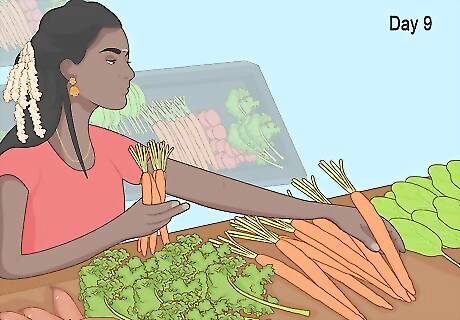
Make the final preparations for the sadya meal on day 9. The ninth day is known as Uthradam or Onam eve. Go out and buy any fresh vegetables or fruits that you’ll need for your sadya meal the next day. Look over your house once more to ensure that everything is clean and orderly.
Enjoying Day 10 or Thiruvonam
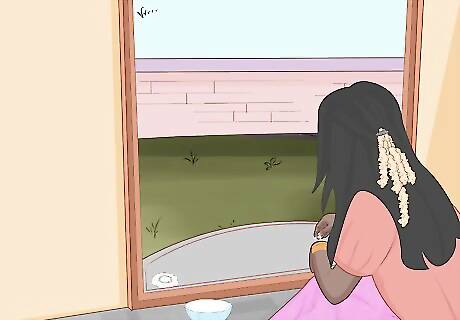
Scatter rice flour across your door’s entrance. Put a bit of rice flour into your palms and gently sift it over the main entry point into your home. This is a way of signaling to others that you are celebrating Onam and would welcome their visit.
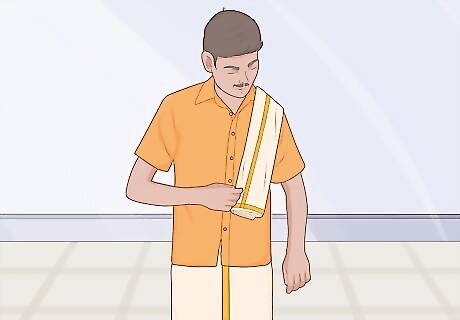
Put on fresh, new clothes. Wake up bright and early to take a bath. Then, put on your formal clothes for the day, often presented to you by the eldest female family member. Women will usually wear white sarees with a border of golden thread. Men will usually don a white dhoti with a border of golden thread.

Go see a lights and fireworks display. Throughout the entire Onam celebration and particularly on the final day, temples and cities may shoot off fireworks. Go to one of these locations and watch the show. The display might be modest or very extravagant, depending on the local budget.
Partaking in a Sadya feast
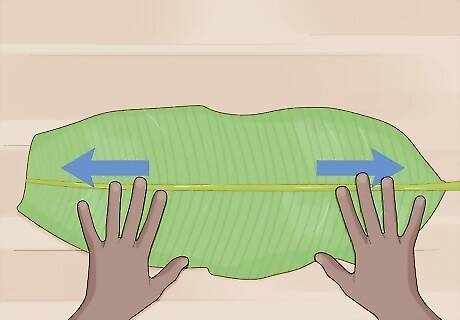
Position your banana leaf. The banana leaf is the primary table setting for the Sadhya meal and all of the food items will be placed upon it. However, the leaf itself must be in proper position with the tapered end facing to your left. It should be near enough to you so that you can reach the food without stretching overly much.
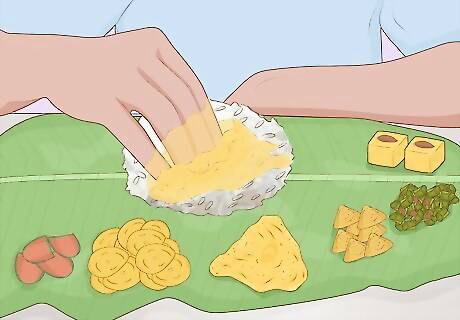
Concentrate on eating the most recent course served. Depending on the Sadhya, it’s possible to have up to 24 dishes on your leaf over the duration of the meal. This means that you can get full really quickly if you try to eat everything. Instead, each time a course is brought out, focus on trying out each of these new foods. The first course is usually a number of rice dishes. The courses alternate flavors from salty to spicy. Dessert dishes can be served at the very end or as a course right in the middle. It’s fine to go back and eat some of the foods from prior courses. But, do this only after you’ve eaten a bit from each of the more recent foods offered to you.
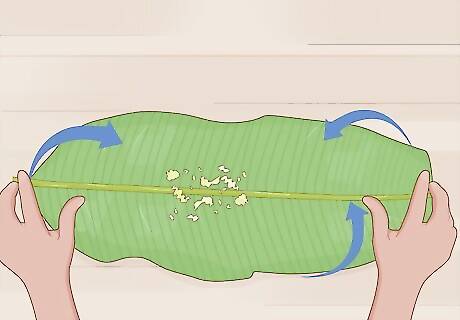
Fold the leaf when finished. After the last course has been served and you are done eating, gently grab the edges of the banana leaf and fold it from top to bottom. Keep folding until the leaf is now a small-ish packet and the food inside is fully contained. Pull the leaf towards you a bit. Not folding your leaf, or pushing it away from yourself, indicates that you did not enjoy your meal and is insulting for the hosts.




















Comments
0 comment